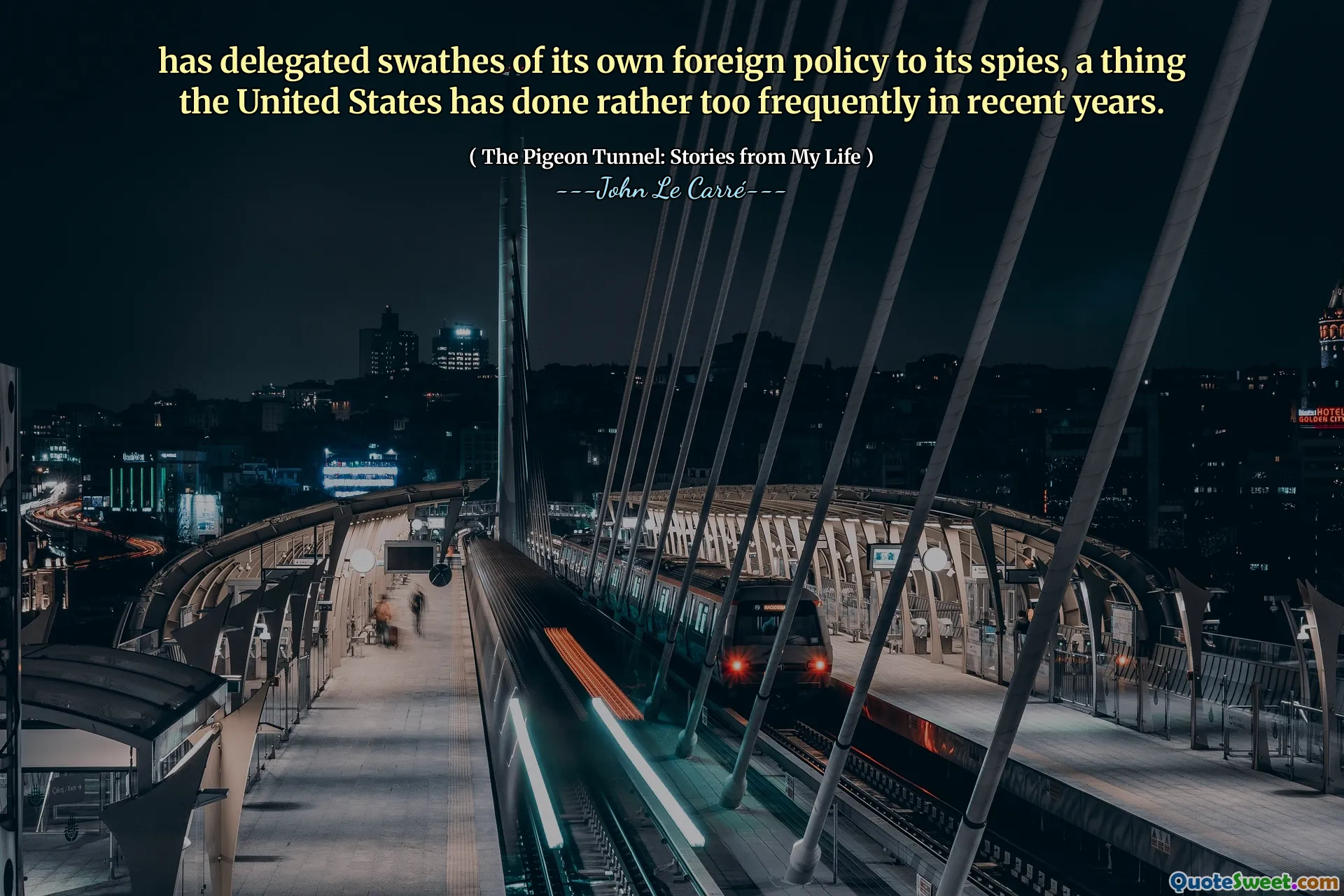
has delegated swathes of its own foreign policy to its spies, a thing the United States has done rather too frequently in recent years.
The quote reflects a critical view of how modern nations, notably the United States, rely heavily on intelligence agencies and clandestine operations to shape and execute their foreign policies. This delegation of key diplomatic and strategic decisions to spies and covert operations suggests a shift from transparent diplomacy to behind-the-scenes maneuvering. While intelligence work is crucial for national security, over-reliance on espionage can lead to a blurred line between legitimate intelligence gathering and interference or intervention in foreign affairs. It raises questions about accountability and the potential for such practices to undermine diplomatic relations, provoke conflicts, or create a disconnect between public policy and covert actions.
Historically, the use of espionage has been a double-edged sword. It enables countries to protect their interests and gather critical information that might be otherwise inaccessible. However, when espionage becomes a primary tool for conducting foreign policy, it risks eroding trust among nations and complicates diplomatic dialogue. The quote notes that this trend has been particularly pronounced in recent years, possibly exacerbated by the increasing complexity of global politics, cyber threats, and asymmetric warfare.
Within this context, one might contemplate the ethical boundaries and the long-term implications of such practices. A government that delegates substantial foreign policy decisions to spies risks creating an opaque foreign policy landscape where the public and even other branches of government remain uninformed about the true nature of diplomatic actions. While national security concerns are valid, a balance must be maintained to prevent the erosion of diplomatic norms and to foster transparency and trust.
Ultimately, the quote underscores the importance of judicious and transparent foreign policymaking, ensuring that clandestine operations serve clear strategic objectives without undermining the broader principles of diplomacy and international cooperation.






